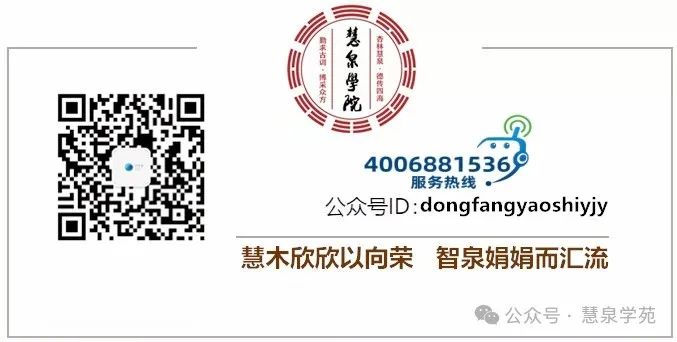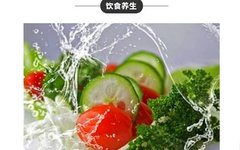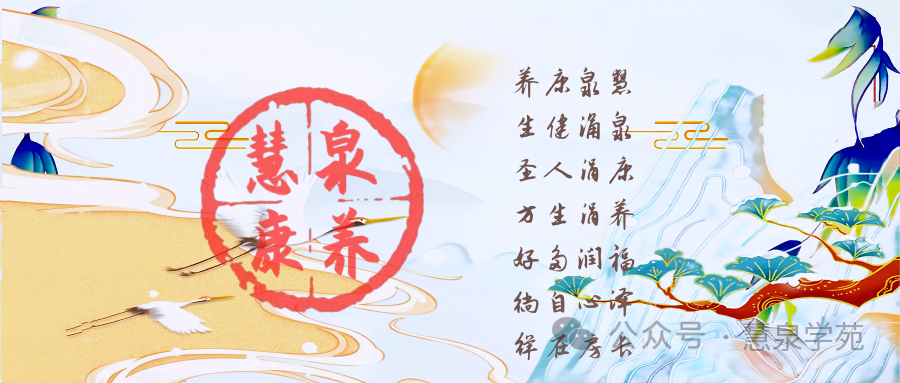 The content of health preservation in Traditional Chinese Medicine (TCM) is very rich. If we were to detail the properties and meridian affiliations of every food, it could take three days and nights to explain. However, if we distill it down to concepts like “regulating Qi and blood” and “balancing nutrition,” it can be summarized in just a few words or sentences.
The content of health preservation in Traditional Chinese Medicine (TCM) is very rich. If we were to detail the properties and meridian affiliations of every food, it could take three days and nights to explain. However, if we distill it down to concepts like “regulating Qi and blood” and “balancing nutrition,” it can be summarized in just a few words or sentences.
In light of current understandings of health and the demands for a healthy lifestyle, we summarize the main content of TCM health preservation into the following six aspects.
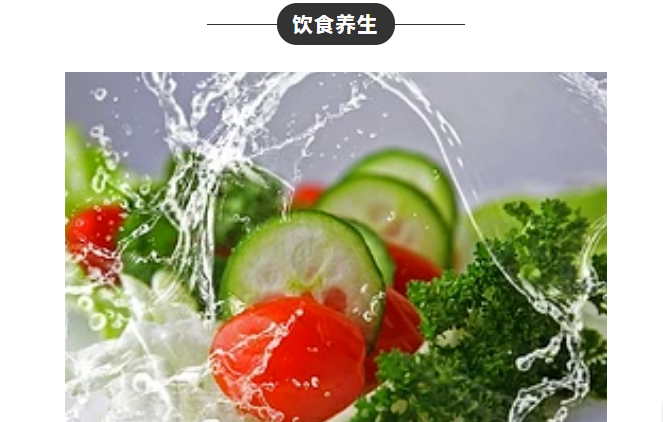
Dietary therapy and medicinal cuisine are deeply rooted in the Chinese mindset. Food is considered the source of life, providing essential nutrients for survival. However, as the saying goes, “water can carry a boat, but it can also capsize it.” A scientifically sound diet promotes health, while improper eating habits can harm the body.
From a nutritional perspective, the principles of a healthy diet are: regular eating habits, a variety of food choices, comprehensive and balanced nutrition, and reasonable combinations.
Additionally, attention must be paid to dietary hygiene and food safety. One should avoid overeating, undereating, and irregular meal times.
Moreover, the most distinctive feature of TCM dietary health preservation is the use of food therapy and medicinal cuisine. TCM believes that food and medicine share the same source, both coming from nature, possessing the same four Qi and five flavors, and can nourish different organs.
For example, the pear, which is sweet and slightly sour, has a cooling nature and enters the lung and stomach meridians. It has the effects of generating fluids, moistening dryness, clearing heat, and resolving phlegm. During the dry autumn season, consuming fresh pears can help nourish Yin and generate fluids to combat autumn dryness.
When experiencing a cough due to lung heat and thirst, pears can be used to moisten the lungs and stop coughing, as well as to quench thirst. A classic food therapy recipe is stewed pears with rock sugar, which is effective for clearing heat and moistening the lungs. Medicinal cuisine can also promote health and prevent diseases, such as chicken stewed with Astragalus (Huang Qi), which has the effect of tonifying Qi and replenishing deficiency, enhancing the body’s immunity and preventing illness.
In summary, there is a wealth of content in dietary health preservation. Depending on individual health conditions or constitutions, we can choose different food therapies or medicinal cuisines to achieve the goals of strengthening the body and preventing or treating diseases.
Living Habits for Health Preservation

Our ancestors have always lived by the principle of “working at sunrise and resting at sunset.” However, modern people have a noticeably faster pace of life, with intense competition leading to frequent late nights and overtime work.
While material life becomes increasingly abundant, spiritual life also becomes colorful. Some indulge in entertainment, squandering their health. Unhealthy living habits have triggered various diseases, such as cervical spondylosis, coronary heart disease, diabetes, and hypertension. Unhealthy lifestyles are causing diseases to manifest at younger ages.
All signs indicate that lifestyle has a significant impact on physical health. We should cultivate good habits, such as maintaining a regular daily routine, avoiding oversleeping and staying up late, balancing work and leisure; keeping living spaces and household items clean and hygienic, getting sunlight regularly, and ensuring proper ventilation in rooms; in winter, pay attention to warmth and avoid blindly following fashion trends, and in summer, sweat appropriately instead of staying in air-conditioned environments all day to avoid “winter diseases.”
Emotional Health Preservation

The classic ancient text, the “Huangdi Neijing,” states, “Sadness depletes Qi, fear causes Qi to descend… shock disrupts Qi, and overthinking leads to Qi stagnation,” and “excessive joy and anger harm the organs, leading to illness arising from Yin deficiency.” These theories emphasize the close relationship between emotional states, mental activities, and physical health.
TCM believes that the seven emotions, which encompass various emotional activities, can affect the functions of the organs and the flow of Qi and blood
and can lead to various diseases throughout the body. Modern medicine also emphasizes the impact of psychological factors on health, transitioning from a purely biomedical model to a “biopsychosocial” model.
Modern medical research has found that when a person is angry, it stimulates the adrenal glands, leading to increased secretion of adrenaline, heightened excitability, and symptoms such as rapid breathing, increased heart rate, and elevated blood pressure, which can trigger migraines, hypertension, coronary heart disease, and other conditions.
In a highly competitive modern society, pressures from study and work lead to various negative emotions such as tension, anxiety, irritability, and depression, which have become significant factors in the onset of many diseases.
In this environment, we must learn emotional health preservation. This means self-regulating emotions, maintaining a peaceful mindset, and approaching life with positivity and optimism; in interpersonal relationships, we should learn to be forgiving, complement each other’s strengths, and live harmoniously, minimizing or avoiding conflicts; when feeling down, we should express our worries to friends and family, rather than bottling them up, which can lead to illness. Traveling to enjoy the beauty of nature can also be a good way to relieve stress. In summary, we should strive to have fewer worries and more joy!
Physical Exercise for Health Preservation

With the rapid development of technology, the number of people engaged in physical labor is decreasing, while those engaged in mental labor is increasing. Many people’s daily lives involve “prolonged sitting,” which is one of the major causes of modern lifestyle diseases.
Life lies in movement; exercise promotes the circulation of Qi and blood. Appropriate physical exercise can strengthen the body and enhance disease resistance. Activities such as aerobics, jogging, walking, swimming, and ball sports are suitable for the general public.
However, exercise should not be taken to extremes. Some people become overly obsessed with fitness, which is also inappropriate. Excessive exercise can lead to injuries to bones, joints, and soft tissues, and suddenly engaging in high-intensity workouts can put a strain on the heart, leading to dangerous events. Therefore, it is recommended that exercise should be gradual, with a focus on light sweating, and one should avoid excessive sweating and breathlessness.
TCM believes that the main causes of disease in the human body are twofold: “insufficient” and “excessive.” Thus, not exercising is not acceptable, but neither is over-exercising.
Seasonal Health Preservation

TCM emphasizes the unity of heaven and humanity, advocating for health practices that align with the natural changes of the four seasons. The principle of “nurturing Yang in spring and summer, and nurturing Yin in autumn and winter” is one of the fundamental principles of TCM health preservation.
In spring, as all things revive, health preservation should focus on nurturing Yang. One should go to bed early and rise early, spend more time in the sun, and engage in outdoor activities on sunny days to breathe fresh air and promote the flow of Qi and blood.
In summer, when all things grow vigorously, the body’s Yang energy is most easily released, so it is crucial to pay attention to nurturing Yang. One should sleep late and rise early, take appropriate naps, avoid the heat of midday, and exercise moderately, preferably in the early morning or evening.
In autumn, a season of maturity, Yang energy begins to contract, and the body should also conserve its essence and fluids, making it essential to prevent autumn dryness. Ancient health preservation scholars believed that in autumn, sleep should be “early to bed and early to rise, waking with the rooster,” meaning going to bed early and getting up early, around the time the rooster crows. Waking early allows the lung Qi to expand; going to bed early aligns with the contraction of Yang energy, preventing the loss of Yin essence. Additionally, clothing should be adjusted according to temperature changes, and one should maintain an optimistic mood, avoiding melancholy associated with autumn.
In winter, a season of storage, the body also needs to conserve energy to resist the cold. Health preservation should focus on protecting Yin and nurturing Yang, with appropriate supplementation based on individual conditions. One should go to bed early and rise late, and morning exercises should not be too early; outdoor activities should be done after the sun has risen. It is clearly inappropriate for some elderly individuals to go out early to exercise on snowy or rainy days.
Constitutional Health Preservation
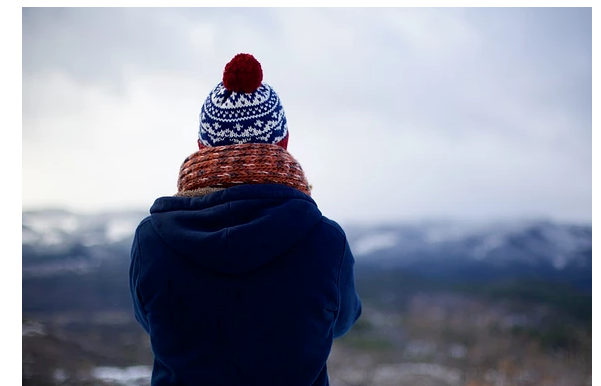
Commonality and individuality are inherent characteristics of all things, and TCM health preservation is no exception. If the content of the above five aspects represents commonality, then constitutional health preservation emphasizes individuality.
TCM treatment emphasizes syndrome differentiation, which is disease-specific. However, does this mean that there are no differences among healthy individuals? Certainly, there are differences. Whether among healthy individuals, those in sub-health states, or patients with specific diseases, each has a unique constitution, leading to different expressions or choices in dietary habits, daily routines, exercise, and emotional psychology, reflecting individual differences.
For instance, a common cold may manifest in some individuals as sneezing and a runny nose, while others may experience headaches, sore throats, and fever, and some may feel body aches, heaviness in the head, and overall weakness. These differences are related to various innate and acquired factors, including genetic predisposition, dietary habits, geographical environment, climatic factors, social environment, family life, and interpersonal relationships, which contribute to constitutional differences.TCM classifies human constitutions into nine types: balanced constitution, Yang deficiency, Yin deficiency, Qi deficiency, phlegm-dampness, damp-heat, blood stasis, Qi stagnation, and special constitution. Just like syndrome differentiation in TCM diagnosis, different constitutions require different health preservation methods.
Copyright Statement: We emphasize sharing; the images and text are sourced from the internet, and the copyright belongs to the original authors. If there is any infringement, please inform us, and we will promptly delete and apologize.
Click the text below to learn more exciting content:
Fermented Chinese Medicine - A New Chapter in Inheriting Chinese Medicine Culture
Promoting TCM Culture for the Health of the People - Intangible Cultural Heritage - Non-Herbal Medicine for Meridian Unblocking
Non-Herbal Medicine for Meridian Unblocking: Usage, Applicable Population, and Precautions
What are the Advantages of Non-Herbal Medicine for Meridian Unblocking Compared to Massage, Moxibustion, and Cupping?
Brief Analysis: Eastern Pharmacist Exercise Therapy